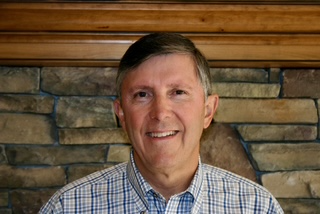‘Atlanta’: Will it fall prey to its own genius?
Published 12:00 am Monday, May 14, 2018
What is “Atlanta,” exactly? It’s a fair but limiting question.
Fair, because, look, if one week you were watching a show about a couple who might have broken up at a German-culture festival, and then the next week they’re gone and you’re watching a road comedy about an exasperated rapper and his pathologically distractible barber, and the episode after that is a mini horror film built around a different character trapped in the mansion of a kooky human mannequin, the change-ups might feel destabilizing. But the question is limiting since so much TV in general right now resembles no TV that’s come before it.
“Atlanta,” whose second season wrapped up on FX on Thursday night, proudly embodies that development. No episode looked or felt the same as the one before it.
The show has four central characters — Earn, Alfred, Darius and Earn’s sometimes ex-girlfriend, Van — who veer in and out of friendship, selfhood, personal clarity and, often, the show itself. In a classic television sense, “Atlanta” is about them. But it’s also increasingly about itself: what its makers can do with the medium, yes, and also what’s possible for the twinned comedies of race and status. It knows the assorted bars a half-hour “sitcom” faces and sets out to raise, vault over and demolish them, to prioritize “sit” over “com.”
“Atlanta” is like a rapper obsessed with his own brilliance. You want to see if the show can top itself because that self-regard is part of the hook. But loving this show means worrying that it might be devoured by its own genius, that it’s too great to last, that, eventually, conceit will cannibalize concept. This second batch of episodes was more obviously, aggressively ambitious. The show became cinema (one ominous aerial shot of a vegetal forest canopy made me want vinaigrette) and appeared to have on its mind the ideas in “Get Out,” the moods of “Moonlight,” the hypnotic ambiguities of David Lynch. Some of that reach toward movieness nudged the show into self-conscious precocity, the equivalent of skipping a grade.
The episodes were packaged as “Robbin’ Season” and kicked off with a drive-through stickup of a chicken-and-biscuits joint that erupts into a grisly shootout that Michael Mann could applaud were it not also depressing. Elsewhere, wallets and money were stolen. But so were time, dignity, childhoods, selfies, songs and a New Year’s Eve allegedly culminating at Drake’s mansion. Thematic audacity came this close to being a drinking game.
The mind-warping grace notes of the first season — a black Justin Bieber, the jaw-dropping getaway of an invisible sports car — were deployed with nonchalance. There was no, “Yeah, we did that.” The lawlessness had charm. For Season 2, something gothic seeped into the show, so even that trip to Drake’s felt haunted. The back half of the season took on the eerie solemnity, existential panic, desperate fealty and forest sequences that made “The Sopranos” cinematic, literary and philosophical.
All of the stoned, bad-dreaminess on “Atlanta” pooled outward until Episode 8 flirted with (then abandoned) formal dream logic: Alfred, played in a state of rock-hard ennui by Brian Tyree Henry, asleep on his sofa, stumbling out of the house, then out of a nail salon, then out of a mugging, then out of the woods. So the next episode’s groggy surrealism — involving a college-party gig — felt like a continuation of the previous week’s. There’s no firm line drawn between slumber and reality. Alfred’s rap career as Paper Boi is either taking off or stuck on the runway. People want him to give them their version of his authenticity. And the dream — if we’re calling it that — is an odyssey to discover what’s truly real.
I imagine that keeping us guessing is part of the mandate of a show like this. Its makers don’t want you to see any of it coming. And if surprise is a strategy, maybe sacrificing conventional coherence is worth the gamble. Season 2 wanted to beguile more than entertain. Its most alarming episode was that mini horror movie, “Teddy Perkins.” The plot’s pretty simple. Darius (Lakeith Stanfield) drives a U-Haul to God knows where to pick up a piano with painted keys.
Darius is the kooky mystic who doesn’t just smoke weed the way everybody else does on “Atlanta”; he personifies the high. And getting that piano is very him. The stiff, formal white-ish gentleman selling it, Teddy Perkins, says he’s the brother and caretaker of a black jazz pianist named Benny Hope. Teddy has the tight, clammy pallor and limited mouth movement of a ventriloquist’s dummy — under the makeup, it’s Donald Glover, the show’s creator, head writer and star, who usually just plays Earn. Teddy isn’t Michael Jackson. He’s merely another resident in the racial prison that locked Jackson up. Which explains why he might have locked his brother up, too — if Benny really is his brother. The episode’s central mystery involves the relationship between them and how the hell Darius is going to get out of their house alive. And yet I did wonder how such a ropy pothead has managed to maneuver that heavy instrument onto a dolly with no apparent sweat.
But being a stickler for sense risks missing the sensibility. “Atlanta” can think pretty big and also movingly small. Alfred’s breaking into a big, semi-embarrassed smile might be the invisible car of character development. You’ll never forget it, and who knows if you’ll see it again.






